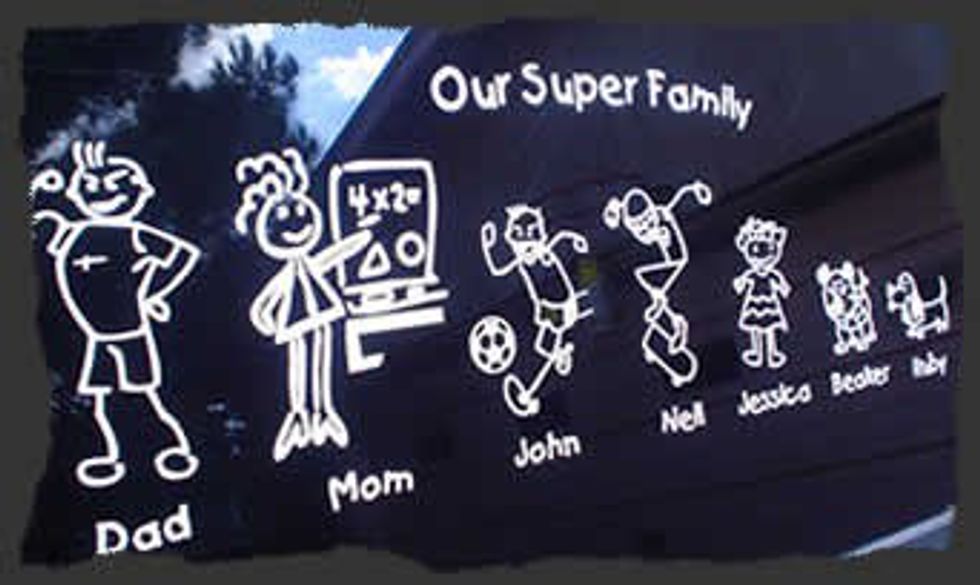An undercover sting operation spanning just under three decades has finally confirmed what most of us have suspected for some time now: The price for buying a mini human monster transporter (also known on the street as a “van” or "mini van") includes a lot more than a down payment and signature. In fact, it’s being shockingly reported that parents buying a van must also offer up half of their intact brain cells in the deal too... if they wish to drive off in the youth-eviscerating van of their dreams that is. If that finding wasn’t shocking enough, it appears that the interest rate for a financed mini van also includes monthly brain cell payments until the full sticker value is paid off. The sting operation confirmed that this is true across all makes and models of vans and even some crossover van/SUV models.
The loss of these brain cells, most powerfully and consistently observed in middle-aged women that have been driving a van for at least 5 years or more, severely affects the van owner's driving ability. In fact, the loss of so many brain cells seems to permanently render the unsuspecting purchasers unable to drive at or above the speed limit or use turn signals correctly. Additional symptoms commonly observed in these semi-brain dead D.u.m. D.u.m.s. (Dangerously Under Minimum Driving Understanding and Mastery Skills) include using the brakes repeatedly on straight, clear roads with nothing remotely close to their vans and the occasional swerving to avoid nothing that’s then followed by an embarrassed increase in speed of 5 mph before becoming dangerously close to doing the speed limit which then results in a panicked tapping of the breaks on said straight, clear road. As mentioned above, the effects of brain cell loss are permanent and due to the monthly brain cell interest rate that eventually renders D.u.m. D.u.m.s. into Super D.u.m. D.u.m.s., there is a steady, irreversible decline in cognitive ability that becomes worse and worse with each brain cell payment.
Unfortunately, another function of the brain that’s affected by the loss of these brain cells is memory. In fact, not one owner of a van has any recollection of losing their brain cells. Further, it seems that their brains try to compensate for the utter lack of functionality with what researchers are calling “the hubris effect,” or excessive pride. The Hubris Effect (T.H.E.) seems to only manifest in self-evaluations of driving and parenting skills, resulting in the self-righteous parents haunting our roads today. In 100% of cases, van owners rated their driving ability against other drivers on the road as “better than every other driver that has been, is, or will be on the road until the end of time” Additionally, when asked to rate their own parenting ability against other parents out there, 100% of D.u.m. D.u.m.s. rated their own parenting as “morally and intellectually superior to every parent out there, human, animal, or alien.”
Researchers, doctors, and mental health professionals are scrambling to find an effective treatment, but it’s too early to tell if any treatments will be discovered that can help these people regrow neurons and become normal again. Sadly, it looks like we won’t see a cure in our lifetimes. If you suspect a family member to be suffering from D.u.m. D.u.m.s. syndrome, don’t confront them. The Hubris Effect will not allow the D.u.m. D.u.m.s. to process any criticism relating to their driving or parenting skills. The best thing you can do for yourself (and everyone else out there) is take the wheel if at all possible. D.u.m. D.u.m.s. are easier to manage than the more advanced stage deterioration seen in Super D.u.m. D.u.m.s. The easiest way to know where in the process of this disease your loved one is is to keep a look out for stick-figure family stickers on the back of the van. That is a dead giveaway that you are dealing with Super D.u.m. D.u.m.s..
Check back periodically for updates or treatment options and support group meetings. Good luck out there everyone!




















